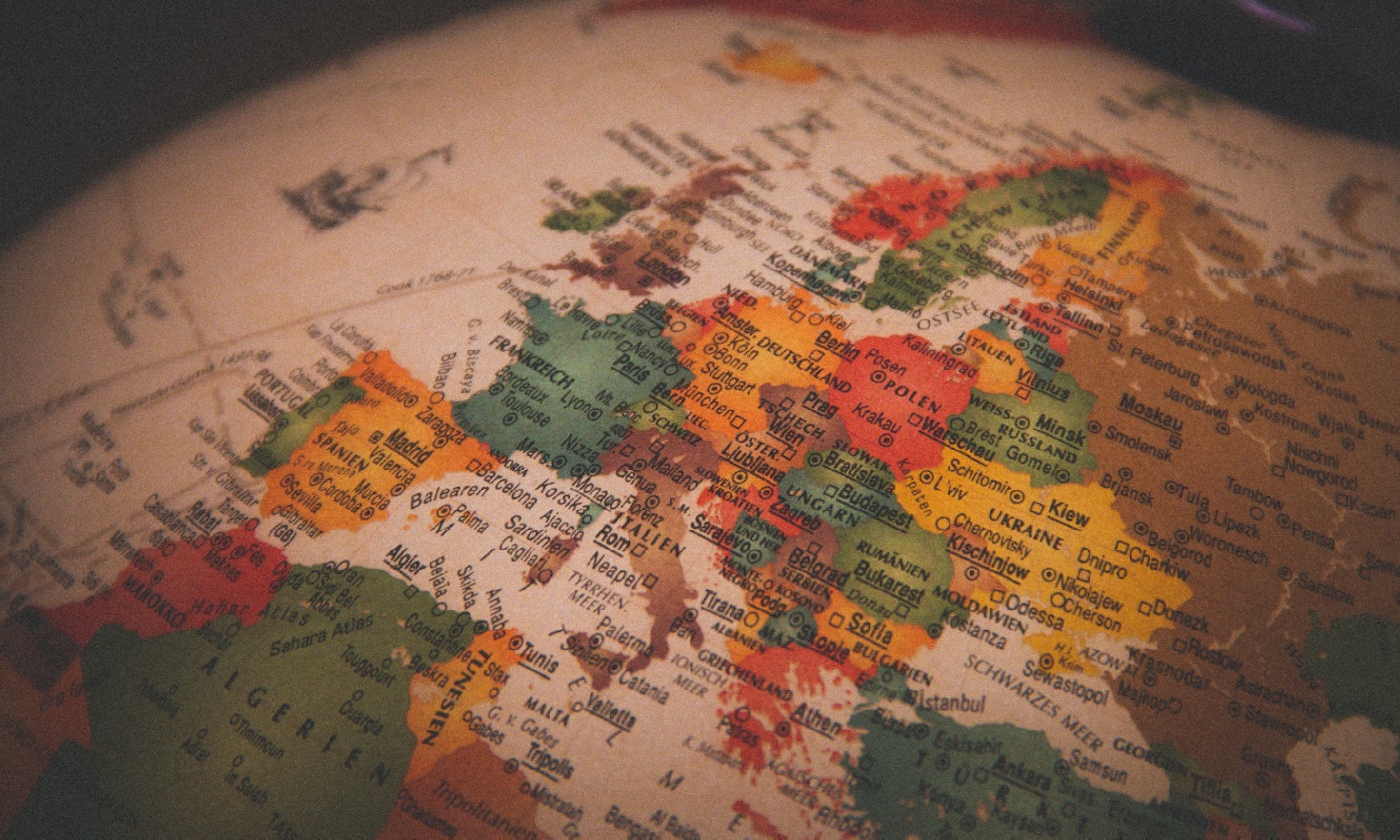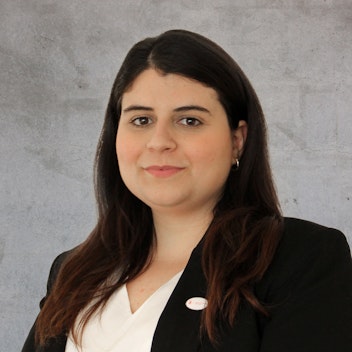Re-thinking Political Secularism: The Multiculturalist Challenge

Religion represents one of the main elements that play a key role in not only the perception of minorities, but also in how it shapes politics and the feeling of belonging. This is exactly what Tariq Modood, professor at the University of Bristol, has addressed in his most recent publication, Essays on Secularism and Multiculturalism, which he presented within the framework of the Institute for Minority Rights’ Annual Minority Rights lecture. In this lecture, Professor Modood explores further these very issues, by explaining how there is the need to rethink political secularism, not only for social integration but also for raising questions about the role of the state and citizenship.
In recent years we have witnessed the intertwining of religion and politics as becoming more pressing. In particular, the identification through religion has been defining in terms of belonging to a culture and a state, and citizenship. What do you think of the constant use of religion, specifically in public political discourses, focused more on the roots of a nation and its identity?
I think, at least in Western Europe, the new salience of public religion is very much linked to the presence of migrants and their descendants, people are now settled in Europe who give a high value to their own religious community identity and to their faith and religious observers. At the same time, that group of people can be and are feared and stigmatised, othered as outsiders, aliens, backward, a threat - a cultural threat to Western Europe.
It's mainly the minorities, especially Muslims, who are I think racialised because yes, the way that they are perceived and treated it's really like a race, and so in my book I called that an ethnoreligious group formation which has both a positive and a negative side. So, the negative side is the racialisation, the othering that I've just referred to and the positive side is the group itself wanting to express its own identity, which often requires a correction of how it's perceived. I borrow from Charles Taylor the idea of misrecognition and recognition, misrecognition being Muslims seen in terms of their origins only or in terms of their colour or in terms of being a security threat.
That isn't really understanding Muslims, that's not a recognition of Muslims.
So, the positive side is where Muslims are able to express Islam and Muslim community identity as they see it, not as others see it, and that means that others treat them with respect due to fellow citizens. I think, in contrast to the liberal and republican traditions, multicultural citizenship is not just about the sameness of rights and the sameness of treatment - there is that dimension to citizenship - nondiscrimination of course, I wouldn't deny that very important dimension - but I think in the kind of multiculturalism that I stand for we build on that aspect of citizenship to also recognise difference, to recognise group identities in a respectful way, and this isn't just a symbolic recognition but includes and involves institutional accommodation to meet the needs of Muslims where the needs of Muslims are different, for instance, to those of Christians or Jews or others. Ultimately, it’s about including Muslims just like other marginalised groups in rethinking our national identity or rethinking our national citizenship in a more inclusive way, so that all citizens can have a sense of belonging to the common citizenship or to the shared citizenship, but it has to be a shared citizenship that respects difference so it's not a uniformity or homogeneity.
That then begins to raise challenges not just for how we understand religion, but also how we understand secularism - I mean here of course political secularism. Here in Western Europe, we have state-religion connections, not just separation. Some people think that means that we don't have secular states, or we have only imperfectly secular states because there are state-religion connections. I don't think that's true. I think we have our own distinctive form of secularism and I call that moderate secularism because it's a secularism that certainly adheres to the idea that state authority, the laws of the state, citizenship should not be dictated or governed by religious authority. At the same time, it also holds the view the other way around; that religious authority should be respected and should not be taken over by the state. So, it's what sometimes is referred to as a twin autonomy between religious authority and political authority. Mutual autonomy of these two forms of authority or spheres of society.
This moderate secularism recognises that religion can have a public character and can be a public good but within a framework organised with the state, so that the good can be enhanced.
So, I think that what my book tries to do is to suggest ways of thinking about multiculturalism and minority accommodation which is consistent with national identity, citizenship, and political secularism as I see it practiced in Western Europe generally, and Britain most specifically.
What you are proposing with this idea of moderate secularism, right, that we should always need this balance makes me very curious because if I think about the European Union, I see it as this body that already encapsulates a lot of diversity. And yet, even at the supranational level we see how there have been in the past some attempts to really try to dig further into this idea of the roots of the Christian identity. So how would you see it from this bigger perspective, what would you think of this when we consider that the EU is already made of diversity itself?
I'm not against people in Europe wanting to emphasise Christian roots. What I think is not desirable is various forms of exclusivism and any kind of what we might call monocultural nationalism, whether it draws on a historical identity, whether it draws on ethnicity or race or whether it draws on religion as the basis for a kind of, as I say, a monocultural identity which is bound to lead to severe forms of exclusion and, if you like, second class citizenship for those people who don't identify with that dominant identity. So that's the worry to the problem, for me isn't that “oh Christianity is a religion, so why should a European identity make reference to a religion”; no, I understand that Christianity has been very important in the history of Europe and it's up to Europeans themselves what they want to make about Christianity and the historical legacy, but as long as it's not exclusive. So, another way of putting it is that I want to multiculturalise moderate secularism, I want to include the minorities within what we might call these state-church or state-religion relations.
I think it's absolutely necessary for the kind of society as we now are to have a multicultural, multireligious, and more interfaith cooperative sense of themselves. And of course, religious leaders and political leaders should express that in their speeches, in their actions that bring people together and so on. That to me would be the right way forward. To what extent Europeans want to emphasize their Christian identity; well, I don't really have a big view on that, apart from the one big caveat about exclusivity. So, if someone says “oh, we're a Christian country”, I'd say “yes, all right we are, but we are also a multireligious country, we're also a country where a lot of people don't have a faith and don't want one”.
So I would say we have to bring together that triangle: those who want to emphasise their Christianity; the minority faiths, who in some ways actually are more likely to emphasise the religious identity than the Christian majority is, especially in northwestern Europe; and then those people who don't really want to have much to do with religion, who think of themselves as secular and are very happy if others would do so as well. So, I think we have to keep that triangle together. That’s part of our kind of national forces or national conversations and they should be conducted in a way that brings people together rather than a conversation that's about leading to some kind of exclusion.
Movement, especially of minorities, is something that has happened and is still happening a lot, and especially now due to the current situation in Afghanistan. How could we maybe use this as an opportunity to further promote this idea of multiculturalism and moderate secularism? What do you think that could be done in regard to this “new” movement of people?
I think migration is a very big issue in so many parts of the world, certainly in Europe, certainly in Britain, and we had the tragedy recently when over 30 people were drowned in a boat, just a small dinghy, coming from Calais towards England. I think that we have to honour in a humanitarian way, we have to honour the international obligations to protect refugees. Of course, especially in Britain, we have an obligation to a lot of Afghans who worked with the British, often risking their lives, risking the security of their own and their families. So, I put that in a different category; they're not just refugees, they are people we have an obligation to, not just the international obligation of shelter and refuge but the obligation of giving them permanent residence who have taken risks in assisting Britain and its security.
Of course, those numbers are relatively limited to the large refugee flows, which themselves are only part of an even larger migration flows. It might surprise you that I think multiculturalism has relatively little to say about migration policies. Migration policies must not be discriminatory in relation to the grounds or identities that multiculturalism deals with, in particular, you know, race, ethnicity, and religion. Migration policies can be discriminatory in relation to economic skills for instance, and clearly can be discriminatory in relation to humanitarian need - when I say discriminatory, I mean be a basis for selection and prioritisation. I think politicians shouldn't talk about migration in ways that create racist and hostile images and atmospheres, discourses; that is clearly anti-multiculturalists and is not good for society. I don't think there is such a thing as a multiculturalist migration policy because the multiculturalism that I'm talking about is about citizenship. And while of course there are issues about how you become a citizen - you can become a citizen through migration, residence, and naturalisation of course - nevertheless multiculturism is about citizens, what citizens owe to each other as citizens. So that's why I think that the very difficult decisions that we're faced with in relation to migration are not something that multiculturalism can give conclusive answers to.
About the Interviewed
Tariq Modood, FBA is Professor of Sociology, Politics and Public Policy and founding Director of the Centre for the Study of Ethnicity and Citizenship at the University of Bristol and a Fellow of the British Academy. He is the co-founder of the journal, Ethnicities and has held over 40 grants and consultancies, has over 35 (co-)authored and (co-)edited books and reports and over 250 articles and chapters. His work is frequently cited by policy-makers and practitioners and on several occasions has influenced policy in the UK.

Citation
This content is licensed under a Creative Commons Attribution 4.0 International license except for third-party materials or where otherwise noted.

A US-designed Migration Pact for the Americas?
 Leiza Brumat
Leiza Brumat
“I’ll see you on the other side”: migrant journeys and the (re)formation of diasporic identities
 Leah Simmons Wood
Leah Simmons Wood
Politics of Adjustment: How mayors in rural municipalities manage reception facilities for asylum seekers


